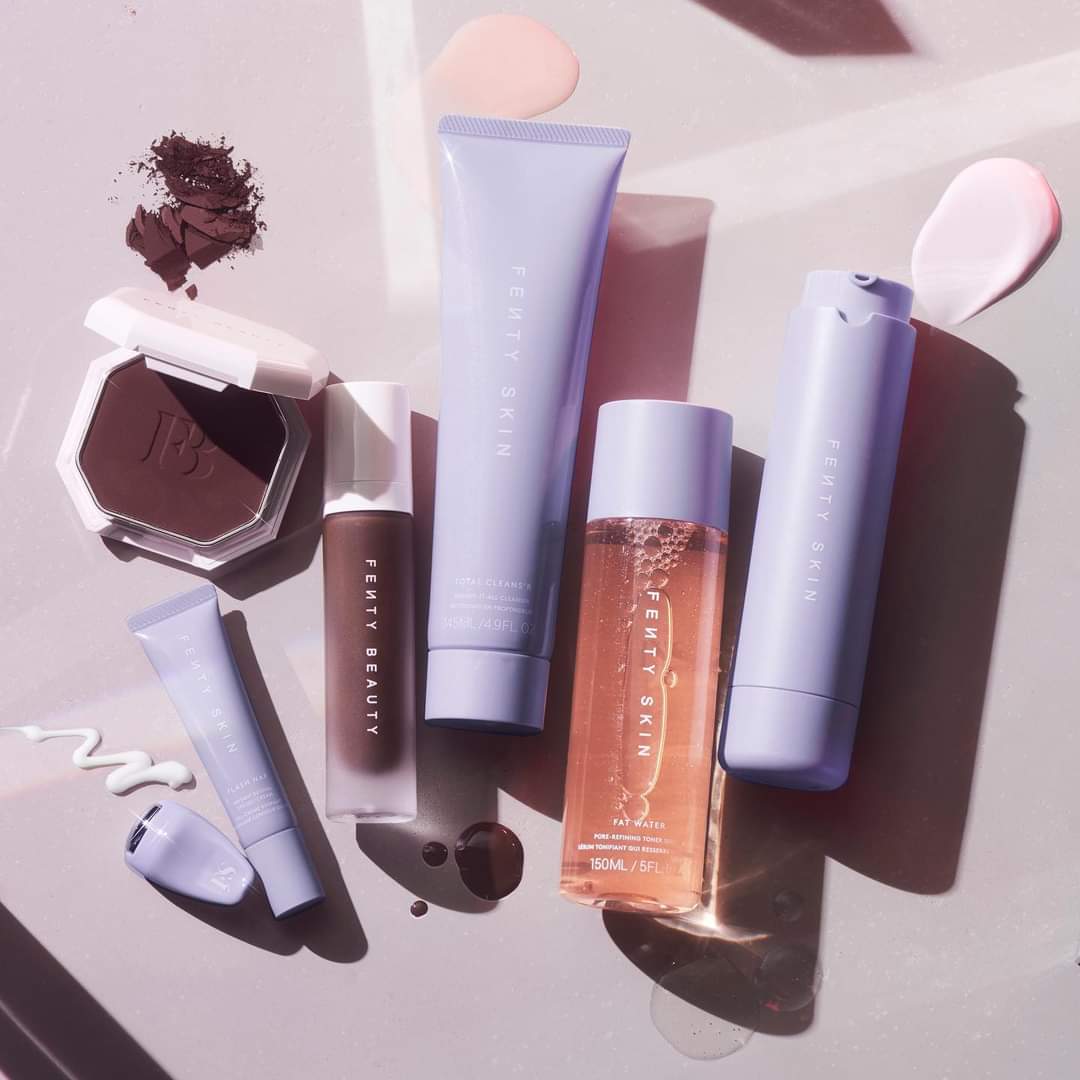The beauty industry has long been criticized for its narrow standards of beauty, often catering to a limited range of skin tones, ethnicities, and gender expressions. However, in recent years, there has been a significant shift toward inclusivity, with many brands stepping up to celebrate diversity and representation in makeup. This movement has not only transformed the industry but has also empowered consumers from all walks of life to see themselves represented in the products they use. Here are some of the trailblazing brands leading the charge in inclusive beauty.
Fenty Beauty
When Rihanna launched Fenty Beauty in 2017, it sent shockwaves through the beauty world. The brand debuted with an unprecedented 40-shade foundation range, setting a new standard for inclusivity. Fenty Beauty’s commitment to diversity goes beyond foundation shades, extending to its marketing campaigns, which feature models of various skin tones, ethnicities, and genders. Rihanna’s vision was clear: “Beauty for all.” This approach not only filled a gap in the market but also inspired other brands to expand their own shade ranges and rethink their inclusivity strategies.
Mented Cosmetics
Mented Cosmetics was born out of a frustration with the lack of makeup options for women of color. Founders KJ Miller and Amanda E. Johnson created a line of nude lipsticks designed to complement a variety of deeper skin tones. Since then, Mented has expanded its product offerings to include foundations, eyeshadows, and blushes, all with an emphasis on inclusivity. The brand’s mission is to make sure every woman feels seen and valued in the beauty space, and its success is a testament to the power of representation.
UOMA Beauty
UOMA Beauty, founded by Nigerian-born Sharon Chuter, is another brand pushing the boundaries of inclusivity. With the belief that “beauty starts the moment you decide to be yourself,” UOMA Beauty offers an extensive range of foundation shades, inclusive marketing, and innovative product formulations. The brand also actively challenges beauty norms and stereotypes, promoting a message of self-expression and individuality. UOMA Beauty’s bold and unapologetic approach has earned it a loyal following and significant recognition in the industry.
Pat McGrath Labs
Renowned makeup artist Pat McGrath’s eponymous brand, Pat McGrath Labs, is known for its luxurious and highly pigmented products. McGrath has always championed diversity and inclusion in her work, and her brand reflects this ethos. With a wide range of shades and products that cater to all skin tones, Pat McGrath Labs celebrates beauty in all its forms. McGrath’s influence in the industry extends beyond her products, as she continues to advocate for more inclusive practices in fashion and beauty.
Beauty Bakerie
Cashmere Nicole, founder of Beauty Bakerie, created her brand with a focus on inclusivity and social responsibility. Beauty Bakerie is known for its diverse shade range and creative product themes inspired by baked goods. The brand’s “Sugar Lip Scrub” and “Cake Mix Foundation” have become cult favorites among beauty enthusiasts. Additionally, Beauty Bakerie is committed to giving back, with initiatives like “Sugar Homes,” which supports orphanages around the world. This combination of inclusivity, innovation, and philanthropy sets Beauty Bakerie apart in the beauty industry.
Thrive Causemetics
Thrive Causemetics is a brand with a mission: for every product purchased, one is donated to a woman in need. Founder Karissa Bodnar’s commitment to inclusivity and giving back has resonated with consumers. Thrive Causemetics offers a range of products that cater to all skin tones and types, with an emphasis on clean, high-performance ingredients. The brand’s philanthropic efforts and inclusive approach have made it a standout in the beauty community.
The Impact of Inclusive Beauty
The rise of inclusive beauty has had a profound impact on the industry and consumers alike. By expanding shade ranges, embracing diverse marketing, and challenging traditional beauty norms, these brands have fostered a more inclusive and accepting beauty culture. Consumers now have more options than ever before, allowing them to find products that truly match their skin tones and celebrate their unique identities.
Moreover, the success of these brands has prompted larger, established companies to reevaluate their own inclusivity practices. The industry-wide shift toward diversity and representation is not just a trend but a fundamental change that reflects the growing demand for inclusivity from consumers around the world.
The rise of inclusive beauty is a testament to the power of representation and the positive change that can occur when brands prioritize diversity. Fenty Beauty, Mented Cosmetics, UOMA Beauty, Pat McGrath Labs, Beauty Bakerie, and Thrive Causemetics are just a few of the many brands leading the way in this important movement. As the beauty industry continues to evolve, these trailblazers remind us that everyone deserves to feel beautiful and valued, regardless of their skin tone, ethnicity, or gender.








